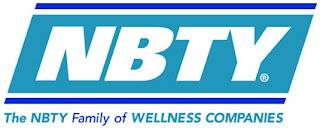Pick up any bottle of herbal supplements and many common “vitamins” and workout aids, and you will find the familiar phrase: “these statements have not been evaluated by the food and drug administration” or another popular disclaimer: “this product is not intended to treat or cure any disease.”
The statements are meant as a consumer warning that the products contained therein in have not been ruled on by the FDA. Doesn’t mean they’re not safe, just that they’re not fully approved by the FDA for a specific purpose. Essentially, buyer beware.
At least one herbal supplement maker is taking steps, thanks to an agreement with the New York Attorney General, to implement new quality control practices in order to be more certain of the authenticity of its products.
The company, NBTY, is based in Long Island and caught the attention of Attorney General Eric Schneiderman, who forced settlements in an issue that included NBTY, GNC, and Nature’s Way.
As part of the settlement, NBTY has agreed to phase in barcoding over the next few years and to conduct regular allergen testing for substances like peanuts, milk, soy, eggs, and wheat in their products. While NBTY has agreed to do this, the company in no way admitted a failure to comply with federal requirements.
In this business, the consumer belief in the product’s authenticity and safety is a key selling point. Without FDA approval, companies have to do some creative communicating to establish trust in the consumer market. Not necessarily deceitful or outrageous, just “extra” marketing to establish context products with the FDA “thumbs up” don’t have to provide.
If a product is found to be less than advertised, it can kill a product or even an entire company. And, if a company is found to have oversold its product’s effectiveness or otherwise fudged the line between reality and advertising, the PR consequences can be disastrous – and expensive – as Herbalife learned recently.
Getting ahead of the game can set the brand up as a trendsetter in an industry, willing to go the extra mile for the customer. Sure, they had a little “help” from the state. But the brand agreed to take the action – and pay the cost – of keeping the customer better informed. In this case, a loss at the negotiation table could mean a win in the marketplace.
David Milberg is an financial analyst who hails from NYC.

No comments:
Post a Comment